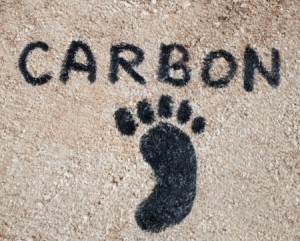5 things you can do to reduce global carbon footprint
For an environmental issue as big as climate change, the smallest things still do matter. Homeowners can take these five simple steps so that they can do their share in reducing the carbon footprint human activities leave on this planet. The carbon footprint is a measure of how great an activity has toward contributing to greenhouse gases, a major component of climate change.
Inquirer Property recently asked a landscape architect, a civil engineer and its resident green architect for their practical suggestions.
1. Reduce energy consumption via light. Landscape architect Dickie Altavas suggests that homeowners switch to outdoor LED (light-emitting diode) lighting to reduce energy consumption.
“Even if you hardly see the difference in your bills, at least you’re doing your part,” Altavas said.
A few other energy-saving lighting tips, according to “365 Ways to Live Green,” are:
Avoid opaque light shades that require stronger bulbs; use light-colored paints and flooring to reflect light; clean dust from light fixtures so their light will shine through; and when reading or performing tasks requiring focused lighting, turn off background lights and rely on a small focused lamp.
Choose compact fluorescent lights over incandescent light bulbs. The former is four times more energy efficient.
2. Choose white for your roof. “Use white-colored roof and roof insulation to cut down energy use by preventing heat transmission,” said Inquirer Property columnist and architect Amado de Jesus of the Green Architect Movement.
3. Surround your house with greens and birds.
“Plant trees around the house or have green walls with plants,” according to Alexis Acacio, director of the University of the Philippines Institute of Civil Engineering.
And while you’re greening your house, choose trees and plants endemic to your place.
To avoid using pesticide and other unnatural forms of weed killers, create a surrounding that is bird-friendly, using hollow logs or by building small birdhouses. Why? The book “True Green” explains that birds consume “up to half their weight” in weed seeds, pests and insects every day, while they also pollinate flowers and spread valuable plant seeds.
To protect your bird sanctuary, avoid cutting branches that have birds’ nests, and make sure house pets—especially cats—can’t get to these nests.
4. Treat water as a finite resource. Water is not in unlimited supply. So, optimize its use any way you can. Make use of the “gray water” system. De Jesus said this means reusing water from kitchen sinks and shower stalls for irrigation. “This is easy to implement, and is effective,” he quipped.
Altavas added: “Collect and store rainwater for irrigation.”
“True Green” urges a reduction of the average shower time by half (from 10 minutes to five minutes) in order to save more than 4,200 gallons of water each year, and also cut utility costs.
“If you’re spending more than five minutes in the shower, you’re dawdling. If it’s more than 10 minutes, over the course of a year, you could be wasting enough water to fill a backyard pool and creating an extra 2,200 pounds of carbon dioxide emissions just from the energy used to heat the water.”
5. Don’t set the air-conditioner temp too low. “Set the thermostat of your air-conditioner to 24 degrees, not to levels where people have to wear jackets,” Acacio advised.
“True Green” suggested that the room that is air-conditioned must be as sealed as possible to make the most of the energy used to cool the air. That means there should be no cracks under the doors, between windows and around floor vents.















